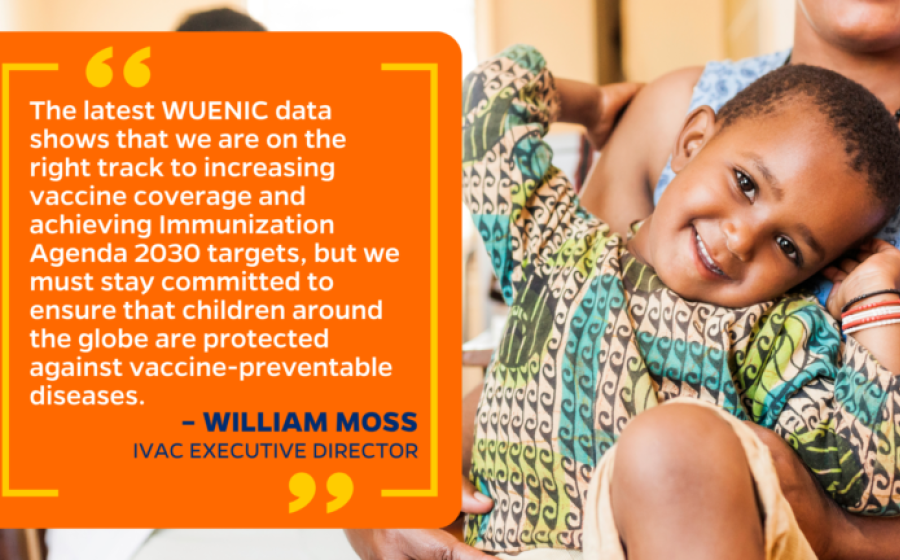As Immunization Coverage Begins to Recover, Inequities Remain
Although we are beginning to recover from the immunization backslide caused by the COVID-19 pandemic, the recently released WHO and UNICEF national estimates of immunization coverage (WUENIC) shows that continued efforts are needed to ensure equitable access to vaccines. These life-saving vaccines are critical to prevent unnecessary illnesses and deaths and to provide a higher quality of life for children around the globe.
The latest data illustrate that intensified efforts to return vaccine coverage to pre-pandemic levels have achieved some promising results. More than 20 years after the introduction of pneumococcal conjugate vaccine (PCV), 6 in 10 infants around the world have been fully vaccinated against pneumococcal disease, compared to 51% coverage in 2021. However, there are still more than 30 countries that have yet to introduce PCV, meaning that millions of infants around the world are left unprotected from this leading cause of child pneumonia and mortality. We must continue to advocate for PCV introduction and bolster efforts to increase coverage where it is needed most.

WUENIC data shows increasing vaccine coverage.
The number of zero-dose children, defined as those who failed to receive a single dose of diphtheria, tetanus, and pertussis (DTP) vaccines, has decreased since 2021 (14.3 million compared to 18.1 million), and coverage of the third dose of DTP (DTP-3) has also improved (84% compared to 81%). Despite these gains, DTP coverage remains below 2019 levels, indicating that there is still work to do to reverse the immunization backslide. Additionally, more than half the number of zero-dose children are concentrated in just 10 countries, pointing to significant disparities in immunization coverage that must be addressed.
Another area for concern is global measles vaccine coverage. Although many countries have seen improvements in measles vaccine coverage in the past year, more than half have not yet recovered to pre-pandemic levels and remain vulnerable to deadly measles outbreaks. In 2022, nearly 22 million children missed out on a first dose of measles-containing vaccine, and more than 13 million children missed their second dose. These coverage gaps have contributed to a rise in measles cases over the past few years, raising the possibility of a resurgence of this extremely contagious disease. In fact, more than 30 countries have experienced large and disruptive measles outbreaks in the past year. Efforts are urgently needed to increase coverage of measles-containing vaccine and protect children everywhere from these dangerous outbreaks.
“The latest WUENIC data shows that we are on the right track to increasing vaccine coverage and achieving dda 2030 targets, but we must stay committed to ensure that children around the globe are protected against vaccine-preventable diseases,” stated William Moss, Executive Director of the International Vaccine Access Center. Though some countries have gained momentum in rebounding from pandemic-related immunization disruptions, not all countries have recovered at the same pace, with low-income countries and those in the African region still lagging behind. Ongoing efforts to increase immunization coverage should work to address these disparities and concentrate resources where they are needed most. “We hope that the Big Catch-Up, the new global effort to boost immunization, will help increase global vaccination coverage to above pre-pandemic levels and strengthen primary health care services while doing so,” Moss said.


